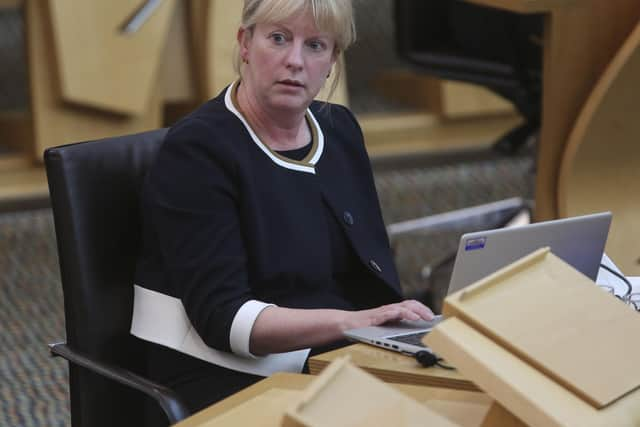Devolved governments call for Westminster to reverse plans for Universal Credit cut
The joint letter to Therese Coffey from social justice secretary Shona Robison, Welsh social justice minister Jane Hutt and Northern Ireland’s communities minister Deirdre Hargey points out the UK Government’s plans will cost people more than £1,000 a year “at time when they need financial support the most”.
The letter states: “This planned withdrawal will be the biggest overnight reduction to a basic rate of social security since the modern welfare state began, more than 70 years ago. It could cut social security payments in Scotland alone by over £460 million per year by 2023/24.
Advertisement
Hide AdAdvertisement
Hide Ad"Failing to maintain the recent uplift to Universal Credit will increase hardship and poverty for people who are already struggling.


“We are concerned about the potential impact that reducing Universal Credit will have on child poverty, poverty levels and the financial health and wellbeing of people. We urge the UK Government to reverse the decision without delay in order to avoid causing further anxiety.”
The letter said the proposed reduction could cut social security payments in Scotland alone by over £460 million per year by 2023/24.
In Scotland around 480,000 people are currently on Universal Credit – a rise of 6 per cent in the past year, down to a combination of pandemic job losses and the ongoing shift from legacy benefits.
The 35-44-year-old and over-54 age groups on Universal Credit grew the most – by 10,000 and 9,000 respectively.
Across the UK there were five million UC claimants by February, double the number before the pandemic, with almost all benefiting from a £20 weekly “uplift” introduced by Chancellor Rishi Sunak to help families through the Covid crisis.
On average that £20 represents 12 per cent of people’s benefit entitlements – but for a quarter of claimants, 1.2 million, it makes up at least 20 per cent of their income.
The uplift is due to expire at the end of September.
A UK Government spokesperson said the number of self-employed claimants on Universal Credit was now “significantly less”, and added the vast majority would not be affected by the return of the Minimum Income Floor until 2022 due to the one-year start-up period for those claimants in newly gainful self-employment.
Advertisement
Hide AdAdvertisement
Hide AdThe spokesperson said: “The temporary uplift to Universal Credit was designed to help claimants through the economic shock and financial disruption of the toughest stages of the pandemic, and it has done so.
“Universal Credit will continue to provide a vital safety net and with record vacancies available, alongside the successful vaccination rollout, it’s right that we now focus on our Plan for Jobs, helping claimants to increase their earnings by boosting their skills and getting into work, progressing in work or increasing their hours.”
The UK Government said claimants would be given a month's notice before any reduction in their award.
A message from the Editor:
Thank you for reading this article. We're more reliant on your support than ever as the shift in consumer habits brought about by Coronavirus impacts our advertisers.
If you haven't already, please consider supporting our trusted, fact-checked journalism by taking out a digital subscription.
Comments
Want to join the conversation? Please or to comment on this article.
